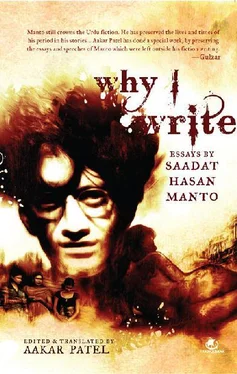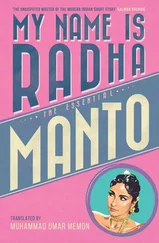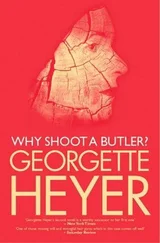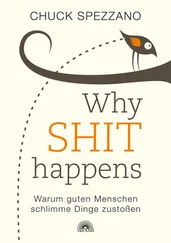If a woman from a brothel should leave it and find work in cinema, then we have little right to oppose her. Prostitutes are really the products of society. Then why do we raise the demand for putting an end to them, when they form a legitimate part of our culture? If they are to be reformed, then we must also reform all other work that is associated with the body.
A clerk in an office spends his day writing and inspecting books of accounts. Similarly, the seller of alcohol spends his day making a living his way. Both for the same reason. Only their methods are different.
It’s possible that our office clerk, should he have no other option, might also turn to selling alcohol. We would not hate him for this, even if we dont like those who drink. What reason could there be for such hatred to be shown only when a woman offers to sell what she has of value — her body?
The circumstance of such a woman is surely not deserving of hatred or contempt. The good women of our good families are the way they are, so fragrant to us, because of the social conditions in which they were brought up. From the security of their home, they enter the financial safety of their husband’s home. They are at all times distant from the rough ways of the world.
The woman who didn’t have a father’s shelter, had no education, who had to feed herself with her own devices, such a woman is like a broken pebble from a pavement.
Prostitutes are not born, they are made. Or they make themselves.
If a thing is in demand, it will always enter the market. Men demand the body of women. This is why every city has its red light area. If the demand were to end today, these areas would vanish on their own.
Our classification of women, this naming and branding them as prostitutes is in itself wrong. A man remains a man no matter how poor his conduct. A woman, even if she were to deviate for one instance, from the role given to her by men, is branded a whore.
She is viewed with lust and contempt. Society closes on her doors it leaves ajar for a man stained by the same ink. If both are equal, why are our barbs reserved for the woman?
It is being demanded that the entry of prostitutes into studios be forbidden. Does this not tell us that man is incapable of controlling himself? That he is in fact much weaker than the woman?
To those men who say that women from “good families” must come into the world of cinema, I have this question:
What is it that you mean by “good?”
A woman, who honestly puts her wares on display, and sells them without an intention to cheat, is such a woman not virtuous?
To these men, who want actresses to be women of virtue, I ask: is it fine for a man who acts to be not virtuous? I would say it is necessary for both actors and actresses not to be virtuous, but familiar with the emotions they portray. I say that a woman unfamiliar with the pain of separation from her lover cannot enact it properly. The woman unacquainted with sadness will not be able to show us melancholy.
The facts are before us, we cannot run away from them. If it is the quality of movies we make that concerns us, we must correct our vision. Flaws in character are personal to every individual. They have nothing to do with the talent of the person, which is the aspect that interests us. Our films, whether acted in by women of virtue or fallen virtue, must reflect reality.
I clarify here that I don’t necessarily think of prostitution as a fine thing. I don’t want prostitutes to be given entry into studios for the fact of them being prostitutes alone. What I want to say, and what I have said, is clear enough. If an actress has no memory of pain, no idea of sorrow, she will never be a quality actress.
To be an actress, a woman must be familiar with the fine and the less fine aspects of life. Whether she is from a brothel or from an eminent family, to me an actress is an actress.
Her morality, or her immorality, doesn’t really interest me.
Her talent and art are not related to the kind of human being she otherwise might be.
— (Originally published as Sharif Aurtein
Aur Filmi Duniya )
A Review of Saigal’s Zindagi
So far as I know, this is the only film review Manto ever wrote. The film was called Zindagi, and it starred K L Saigal who sang some of his biggest hits, “So ja rajkumari” and “Main kya janu kya jadu hai.” The film was directed by P C Barua and released in 1940. This means Manto wrote the review when he was twenty-eight. This was not an easy piece to translate. For one, there were many glancing references to scenes from a movie which I had not, and most readers of this translation may not have seen. I rewrote bits of it here and there to make it more readable in English.
The colourful glass bangles jangled and said: “Am I prettier than you?”
While the smoke rose from the fire-bed, troubled
It spiraled as a snake and asked: “Are you the secret that burns within me or am I?”
And the angels drifted in the bright air of the heavens
The spring cloud opened out autumn’s fist, and began to whisper to the mighty oaks .
The sun’s mad rays sent darkness fleeing in terror
Still waters asked the bubbling brook — “Why the impatience?”
Meanwhile, waiting behind her veil, the virgin flashed now this emotion, now that.
These lines are quite representative of poetry today. They squeeze the essence of human existence into a few words. They have life and a sense of mischief. They have anticipation, like the trembling of that awaiting virgin.
Many things like this can be written about the composition. Every line could be shown as having a meaning beyond the obvious.
But the truth is that this sort of thing is intellectually hedonistic. The writer thought of putting out only prettified lines. They don’t really represent anything. The poem may be fun to read but it is ultimately meaningless, because it wasn’t written for depth.
I should know — I wrote it and perhaps spent two minutes on it. But this sort of writing has become quite fashionable in literature.
In Europe, literature had become very heavy. This is why such light poetry was introduced, as a sort of reaction. The reader had had enough of the dense stuff, and so this filled the need.
India has always imitated and is now actually dependent on the west. And so it accepted this sort of poetry and copied it.
Today, I saw New Theatres’ Zindagi, an example of such light literature. When I came out, I wondered what it was that I had seen.
The famous Pandit Inder says this film is about psychology. Meaning something that is outside of perception. A delicate thing swimming in the ether perhaps.
Khwaja Abbas and Jamil Ansari say it’s a very good film. And so I also say it’s a very good film. However, I went to see Zindagi, meaning life . I’m sure Jamil Ansari understands quite well what the word means.
When the lights went down and the film began to unfold, I had a strange feeling. The sort one might have in a bar when, instead of a stiff whisky, one has been handed for some reason, a sweet and sour soft drink. It cannot be returned or thrown away, because that’s not in our culture. And so for two-and-a-half hours, I slowly sipped from this drink. Of course, if lots of ice is added to a soft drink it isn’t without its charms.
Zindagi is a good film. It had everything in it, except perhaps life. It had a counterfeit two-anna coin, which only director Barua could have used. It had songs which only Saigal could have sung. It had lines only Jamuna could have delivered. It had philosophy which Jamil Ansari explained. And it had the touch of an extinguished candle, a moment Khwaja Abbas appreciated.
Читать дальше












